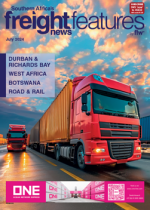In a notable industry shift, cargo owners are moving away from 3PL logistics models to contract directly with freight asset owners for delivery services. Whether seasonal or long-term, a developing trend is also seeing some cargo owners exploring the advantages of marketplace platforms for their shipping needs.According to Renko Bergh, co-founder of CtrlFleet, this gradual move away from 3PLs and the cautious testing of bidding platforms emphasises that the responsibility of transportation ultimately rests with the truck's actual owner and operator. With the changing landscape of 3PL and bidding platforms, it is evident that cargo owners are opting to mitigate their transport risks by ensuring direct links with transport operators, who are also increasingly stepping up to their clients' technological needs."In the past, 3PL operators dominated customer service by adapting technology that provides critical track and trace visibility, analytics, and client integrations. However, the tides are changing. Today, transport owners rely on owning and controlling their assets and offer next-generation technology, including live customer portal updates, driver applications for immediate electronic documentation, and instant issue reporting," he told Freight News.Asked about the rail environment, Bergh said the opportunity presented by hinterland dry ports such as Cato Ridge in Kwa-Zulu Natal could not be ignored. "This symbiotic opportunity for road and rail to interlink in such a critical intermodal transition can see rail return to the once-dominant player it was on main routes such as the N3."With the growing number of trucks on South African roads, the government is continuing to push for a move from road to rail. The Department of Transport's Green Transpor t Strategy, which aims to shift 30% of freight transport from road to rail in the coming years, remains on the agenda."Other trends are significant investments being made to improve road infrastructure. The government has allocated substantial road maintenance and development budgets, aiming to enhance connectivity and reduce transportation costs," says Bergh. "At the same time, there is an increasing focus on reducing emissions from road transport. Adopting cleaner technologies and alternative fuels is encouraged to meet environmental standards and reduce the transport sector's carbon footprint. The benefits of rail for the environment are also well documented."Bergh said both the road and rail transport industries were set for significant change, driven by technological advancements and a strong push towards sustainability. These trends indicate a future where transport systems are more efficient, environmentally friendly, and customer-centric.In South Africa, it is critical to find more intermodal solutions going forward, with rail playing a far more prominent role than it has to date."In this regard, we have seen the South African government opening the rail sector to third-party private operators to attract investment and enhance competition. This is expected to bring about significant improvements in service quality and efficiency. Rail is also being promoted as a more sustainable and economical option for freight.”Looking at global transport developments, Bergh says that the sector, encompassing both road and rail, is undergoing significant transformations driven by technological advancements, sustainability initiatives, and evolving market demands. "Internationally, there is a substantial push towards green energy solutions. ESG considerations are also becoming central to business strategies. Companies are investing in eco-friendly practices, reducing carbon footprints, and improving social and governance standards to meet regulatory requirements and consumer expectations."

